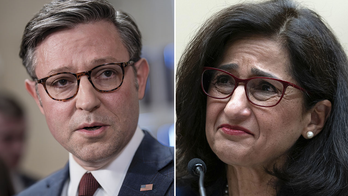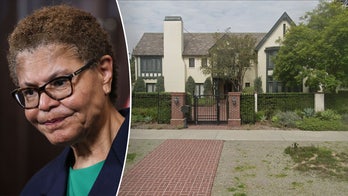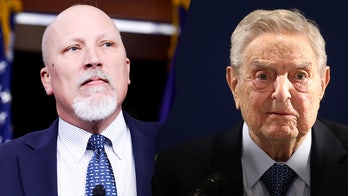Mitt Romney and Paul Ryan are moving to define what they plan to do and what they stand for on the hot-button issues of health care and taxes, after enduring a week in which Democratic convention-goers tried to define that for them.
Both candidates signaled room for compromise on those issues in interviews over the weekend. The remarks follow a convention in Charlotte, N.C., where speaker after speaker accused Republicans of favoring the wealthy in the tax code and imperiling Americans' access to care.
On health care, Romney said Sunday he wants to keep parts of the health care overhaul spearheaded by President Obama. Though Romney vows to repeal the law, he said: "I'm not getting rid of all of health care reform."
Romney said: "There are a number of things that I like" in the law. The Republican presidential nominee said he wants to make sure people with pre-existing conditions can still have guaranteed coverage. And he said he wants to make sure young people can stay on their parents' plan "up to whatever age they might like" -- currently, that age is 26.
The comments may be part of the natural and traditional outreach to the political middle that candidates embark on after sealing their party's presidential nomination.
With the 2012 presidential race consistently so close as to be within the margin of error, independents and undecided voters are key to victory in the November election. The pre-existing condition and young adult provisions Romney mentioned in his interview on NBC's "Meet the Press" are among the most popular in the health care overhaul, though the law itself is divisive.
Romney and Ryan also challenged the narrative that they want to cut benefits to seniors in order to finance tax cuts for the wealthy. Romney said Sunday he does not intend to cut taxes for the well-off.
"I can tell that you people at the high end, high income taxpayers, are going to have fewer deductions and exemptions. Those numbers are going to come down," Romney said. "Otherwise, they'd get a tax break. And I want to make sure people understand, despite what the Democrats said at their convention, I am not reducing taxes on high-income taxpayers."
Romney stressed that while he's proposing a reduction in the tax rate, he wants to close deductions and exemptions "at the high end so the revenues stay the same." Romney said he also wants "to lower the burden on middle income people."
However, Romney did not detail specifically which deductions or loopholes he'd shave back -- a lack of specifics that has opened the door to charges that his plan would, in fact, benefit high-income earners and end up taxing the middle class more.
The Obama campaign on Monday accused Romney of "unapologetic evasiveness," again citing a study that claimed the plan could raise taxes on the middle class by roughly $2,000 a year.
"He couldn't name one (loophole that he'd close)," Vice President Biden said Sunday in Ohio. "He didn't name one. Ladies and gentlemen, look, all this has a giant price tag, and it's not going to come from closing loopholes for millionaires. ... Folks, when you give these kinds of tax breaks out to the very, very wealthy, the money's got to come from somewhere. And guess who? You."
Ryan, in a separate interview, challenged the notion that the ticket is only interested in doling out tax cuts. And, speaking on ABC's "This Week," he challenged Romney's prior opposition to a hypothetical deficit-reduction deal that would include 10 parts spending cuts and 1 part tax hikes.
Asked if he could accept such a deal, Ryan said: "It depends on the quality of the agreement. It depends on the quality of the policy." He did not rule it out.
Ryan went on to reiterate that he thinks Washington's budget problem is that it spends too much -- not that it doesn't tax enough.





